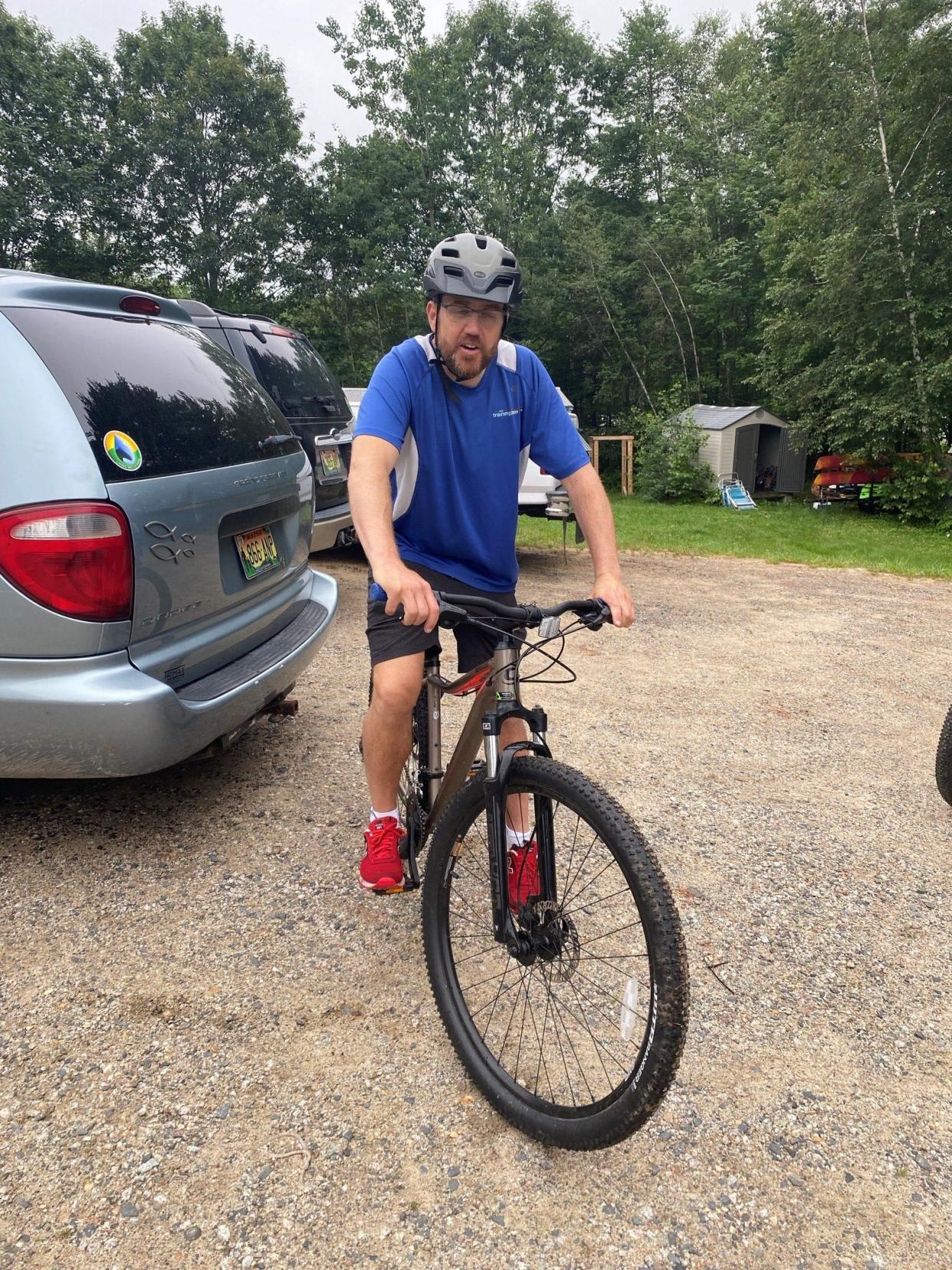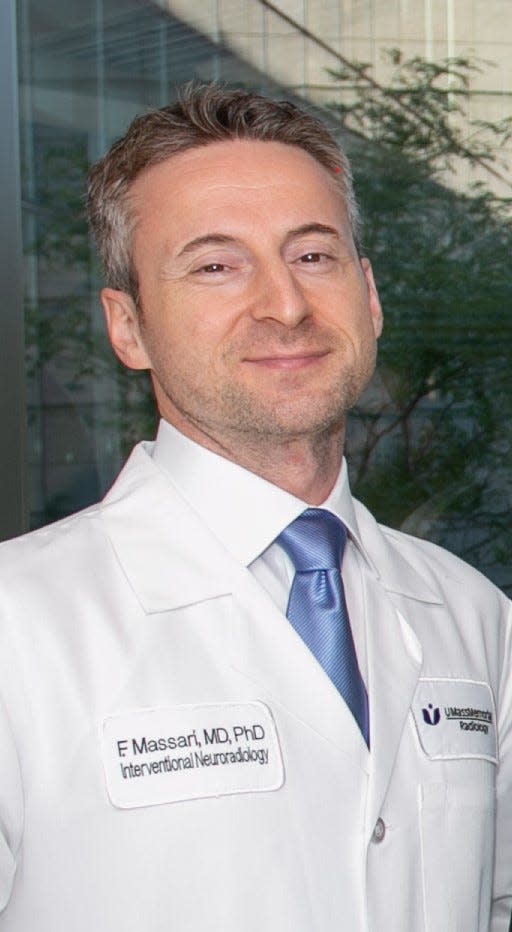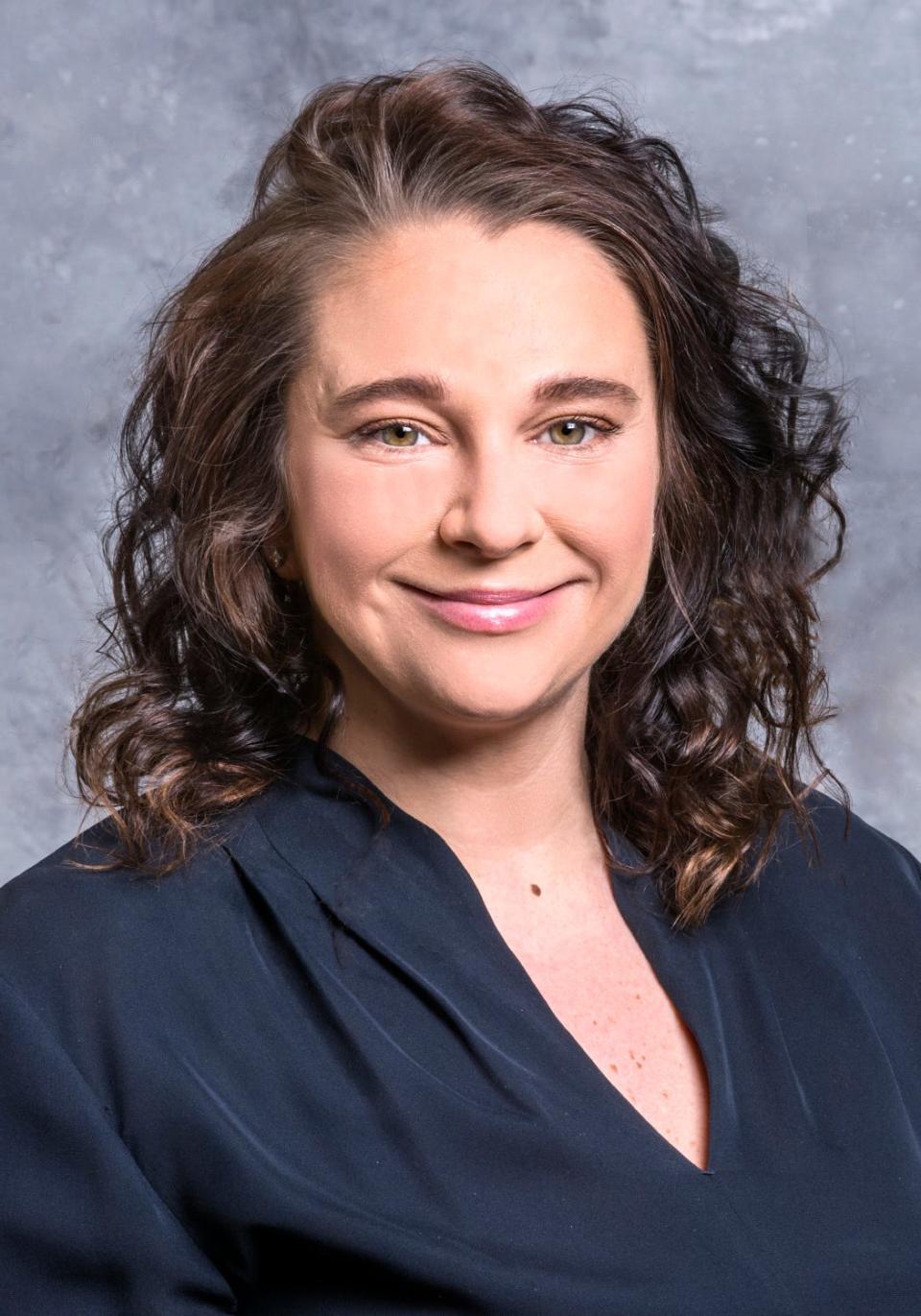Bob Hoffman alive after 'worst case' stroke with 1% survival rate. Here's his story.

PORTSMOUTH — When we think of a person who has suffered a stroke, we do not automatically think of a healthy 50-year-old man. But that's just what happened to Wells, Maine resident Bob Hoffman. His stroke was so atypical the usual approach to care was not what he needed to survive.
A dramatic response saved his life.
Bob Hoffman feels great now and is approaching the point where he has the level of function he had before the stroke.
"I feel great physically," Bob said. "It does not seem like I went through such an ordeal, but I know I did. I know I am lucky to be alive. I know it will take some time to complete my recovery and reach that new normal for me. I am working now toward getting back to work."

He is a supervisor at Pratt and Whitney, an aerospace manufacturer in North Berwick, Maine.
Hoffman's stroke was paired with aneurysm
There is a lot about that time period Bob Hoffman doesn't remember, so his wife Amanda, who can't forget, told a lot of his story.
"It was a Monday, March, 22, 2021, a normal day for all of us," Amanda said. "I worked. Bob went to the gym and came back bragging that his class outperformed others. We went to bed. I woke about midnight and heard what I thought was snoring. I thought to jab him, but then I realized it was not snoring. He was on his back, making these sounds."
Amanda said her husband came around a bit, but she remained concerned.
"I told him to get dressed because we were going to the hospital, because he might have had a stroke," she said. "He suddenly grabbed at his head, said it was the worst pain ever and he began vomiting. I got him to the car and then he had a second stroke, with seizures. With help from family, we got him out of the car and called 911 for an ambulance."
Hoffman was taken to York Hospital, where an emergency room doctor determined he had a stroke and an aneurysm that had ruptured. It was decided to transfer him to Portsmouth Regional Hospital, where there is a specialized stroke center.
Thankfully the Hoffmans found their way to Portsmouth Regional Hospital and NeuroInterventional Radiology specialist Dr. Francesco Massari in time.
When it comes to Bob's specific case, Massari said it was complex and there were risks.
"A brain aneurysm is unknown territory, especially when there is a rupture," he said. "It is necessary to work with the family, to keep them well informed of what is going on."
Waiting was painful for Amanda
"It was my first encounter with COVID protocols as I couldn't go with him in the ambulance," Amanda said. "They told me I wouldn't be able to go to the hospital, either. The nurses at York were so upset for me. They were calling everyone they knew trying to make sure I could see him."
It was 2 a.m., and Amanda was sent home to await a call, which didn't come until 7 a.m. the following day.
"They told me he was stabilized, but that they were calling in a surgical team from Boston, because it was the biggest rupture they had ever seen. That's my Bob — go big or go home," she said. Massari actually splits his time between Portsmouth Regional Hospital and UMass so he's not based solely in Boston.
'Unacceptable': Kittery residents stop plan for 900 housing units, boo developers
He survived thanks to this procedure

Bob Hoffman had surgery but because of the rupture, the usual treatment of using coils to stabilize the stroke were not right. Instead, a stent was placed in his brain, a mesh web to allow blood flow.
Massari explained there are two different types of strokes: ischemic, caused by a blockage of a blood vessel that feeds the brain, and hemorrhagic, where the brain loses access to its blood supply because of bleeding from a blood vessel.
Bob's was the second type. Massari said his brain was not receiving the blood it needed.
"Only 40 to 50% of patients survive a rupture like this," he said. "Bob's aneurysm was worst case, with only 1% surviving. If the patient survives the first bleed, it becomes crucial to prevent a second by sealing the aneurysm. A very real challenge here comes because we need to use blood thinners in order to place the stent."
'On day 14 ... we just held our breath'
"Bob was intubated for 14 days in the Intensive Care Unit," Amanda said. "I did not know what the outcome would be. Would he be able to speak, to walk? Again, because of COVID, I was only allowed to be with him for two hours a day. He knew who I was. For the first four days, he was unresponsive to the staff, but when he heard my voice, I could tell he knew it was me."
Bob was in ICU for four weeks, then moved to a floor at the hospital for two weeks for recovery, then he was transported to a rehabilitation center in Massachusetts near Boston, where he remained for six more weeks.
"This was our first experience with anything remotely this traumatic," Amanda said. "I called the desk every morning and tried to plan my two hours around when I could catch the doctor. On day 14, when they removed the intubation tubes, we just held our breath. Will he talk? Did he know who I was and what happened?"
Child care: 47 Portsmouth Naval Shipyard families lose child care. This military policy is the reason.
Bob knew his family and knew he was in the hospital. Amanda said his sense of time was thrown off, and the stroke had impacted his left side.
"Physically, stuff came back fairly quickly," Amanda said. "In rehab, they really got him moving. But he does not remember, and maybe that's a good thing. He is an endurance athlete, running, biking, and we have a farm. I have to think his physical condition before gave him an edge on his recovery. He is still in occupational and speech therapy to help him rewire his brain. We are grateful to everyone involved."
Hoffmans give thanks
The Hoffmans said they are grateful to the staff at Portsmouth Regional Hospital for their excellent care, and offered special thanks to nurse practitioner Maddie Dalgliesh, the nurses on their floor, and, of course, to Massari.

"I have been doing this for a long time and this disease process can be lethal," Dalgliesh said. "When there is a brain aneurysm, conversation with the patient becomes very important. Everyone knows what to do when a patient breaks a leg, but a brain aneurysm is unknown territory. I want to keep the family informed about what is going on. I tell them this is a marathon, not a sprint. I want them to understand recovery is a long haul."
Massari said the stent used to save Bob's life is a revolutionary tool developed in New England.
"Portsmouth Regional Hospital uses the most modern tools and expertise," he said. "We employ highly technical skills, and I am glad we are here for our patients. In the case of something like this, we rely on timing, luck and having the patient in the right hands.
"It is always a team effort," Massari said. "It's why we wake up in the morning, and it can be extremely rewarding."
Hospital wins honor
Portsmouth Regional Hospital recently received the American Heart Association and American Stroke Association’s Get With The Guidelines - Stroke Gold Plus Quality Award with Target: Stroke Honor Roll Elite Plus with Target: Type 2 Diabetes Honor Roll
Get With The Guidelines – Stroke is an in-hospital program for improving stroke care by promoting consistent adherence to the latest scientific treatment guidelines, according to the American Heart Association's website.
The awards recognize the hospitals’ proven dedication to ensuring all stroke patients have access to best practices and life-saving care. This is the fifth straight year that Portsmouth Regional Hospital has been recognized for the award.
This article originally appeared on Portsmouth Herald: Portsmouth patient survives 'worst case' stroke and aneurysm

